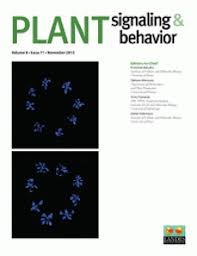 Oops.
Oops.
A plant journal recently retracted a 2017 paper, saying the authors couldn’t pay the page charges ($110/page). The notice has since disappeared, and the journal announced on Twitter Thursday it was issued in error. The paper is now intact on the journal’s site.
This isn’t the first time the journal has withdrawn a statement that authors couldn’t pay the page charges — we’ve discovered the journal removed a line to that effect from a 2015 retraction notice (although in that case, it left the retraction intact). Page charges, often required by traditional publishers, typically cover printing costs; they differ from article processing charges (APCs) levied by open-access journals, which cover the cost of publishing the paper and making it freely available.
We’ve contacted editors at the journal and its publisher, Taylor & Francis, to try to find out why there are mixed messages about author page charges. A spokesperson for the publisher said it was unable to respond before deadline, but it was looking into the matter:
I can confirm that we are committed to following [Committee on Publication Ethics] guidelines and that we are taking this issue seriously.
In the meantime, here’s what we know.
On Wednesday, Twitter users posted about the retraction of a 2017 paper in Plant Signaling & Behavior, “Involvement of nitric oxide in enhanced germination and seedling growth of magnetoprimed maize seeds.”
Abominable retraction from T&F https://t.co/fb6cg1mOPC "the authors could not pay the page charges" (which btw are $110 per page!). Not even an OA APC. Just page charges. Outrageous! https://t.co/90JbNAiMsE
— R⓪ss Mounce @[email protected] (@rmounce) November 8, 2017
Then, the retraction disappeared. This caused more discussion.
The retraction statement seems no longer available "Either the content has moved, or the URL is incorrect."
Did you maybe saved a screenshot?— jibé (@jibe_jeybee) November 8, 2017
The publisher then posted an explanation:
This retraction was human error within Taylor & Francis and should not have been issued, which was why we removed it so quickly yesterday. We really appreciate the community alerting us to this and are now looking into how this could have happened.
The 2017 paper has not yet been indexed by Clarivate Analytics’ Web of Science.
Here’s the other case we found: In 2015, the journal retracted a recently published paper for the same reason. The short note concluded with the sentence:
The authors were not able to pay the required page charges for this paper.
When we covered the 2015 retraction, an author confirmed to us that he withdrew the article after his institution declined to pay for it, and had resubmitted it to a different journal.
When we checked back on the 2015 retraction notice, we realized that the line about the page charges had been removed; the notice now simply says the article has been removed by the editor and publisher, and provides no explanation.
Lots of questions — we’ll update the post if we get some answers.
Hat tip: Rolf Degen
Like Retraction Watch? Consider making a tax-deductible contribution to support our growth. You can also follow us on Twitter, like us on Facebook, add us to your RSS reader, sign up on our homepage for an email every time there’s a new post, or subscribe to our daily digest. Click here to review our Comments Policy. For a sneak peek at what we’re working on, click here. If you have comments or feedback, you can reach us at [email protected].
I have long had the feeling that this profit-centered method of science cannot be lead to disaster in the near future. Science has become too politicized already, which is severely damaging its credibility in the eyes of the mainstream, or rather of the average Joe, as it were. The implications that many such people could read from incidents like these are that good science might be tossed aside and replaced with potentially junk science that the publishers are paid to publish.
We need a return to the pre-industrial age of science, the time just a few decades ago when science was done for the sake of knowledge and the betterment of humanity, and not mired in intractable webs of monetary incentive.
A recent Weekend Reads had a link to an article by a Fields medalist (referred to only as a “mathematician”) who suggested actually moving forward past all journals by having an open web-based system for posting and discussing preprints. arXiv already does the former in math, physics, and such. The latter would likely lead to better overall evaluation of papers, at least in math, than the current process that depends on anonymous unaccountable referees and unaccountable editors who generally do not care, except with papers/authors of direct interest/connection to them.
I suspect this is one of those golden times that never really existed.
In any case,
… that certainly couldn’t happen back then; and everyone had to pay for publishing their own results, unless they had a sponsor … doesn’t sound better than the current system. At all.